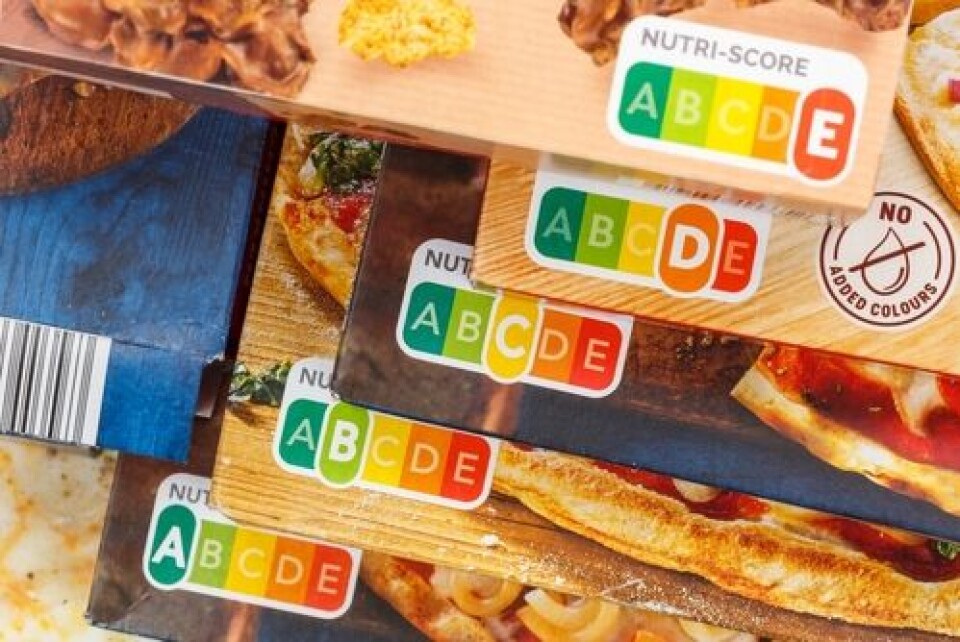-
La Voie Bleue: European Cycle Route of the Year is in France
700km bike path linking Luxembourg and Lyon has been crowned winner of the 2026 title
-
Before and after: Garonne river floods in south-west France
Satellite images show extent of flooding from back-to-back storms in February
-
Home insurance increases expected in France after floods
Compensation costs for the recent storms and flooding across the west and south-west is estimated to be in the billions of euros
French supermarkets under fire for cutting prices on ‘unhealthy’ items
Stores are lowering prices to help fight food inflation. But they have been criticised for including too many low-nutrition items

French supermarkets have been criticised for including ‘unhealthy’ products on a cut-price list aimed at tackling rising food inflation.
It comes after the government has agreed a deal with retail giants such as Carrefour, Auchan and Intermarché to keep prices as ‘low as possible’ on a selection of everyday food products (the products are likely to vary from one supermarket to another) over the next three months.
France’s Economy Minister Bruno Le Maire announced the agreement earlier this week.
Read more: Major French supermarkets agree to keep essential food prices down
But, with year-on-year food inflation already running at 14%, supermarkets – including Monoprix, Intermarché, Carrefour, and E.Leclerc – had been reducing prices on key items even before the government got involved.
Some of the cut-price items include alcohol, fizzy drinks and processed foods.
Read also: Third French supermarket to launch basket of cheaper everyday goods
‘Shouldn’t the priority be on fresh, seasonal, local products?’
These had already attracted criticism from the president of the Fédération nationale des syndicats d'exploitants agricoles (FNSEA) for what she felt was a less-than-healthy selection.
In an open letter to Carrefour CEO Alexandre Bompard, Christiane Lambert asked: “If you’re helping the most vulnerable, as you say you are, does it have to include a selection of spreads, beers, and fizzy drinks? Shouldn’t the priority be to improve the food balance for the least well-off, when these families often have trouble affording fresh, seasonal, and local products?”
Ms Lambert and the FNSEA have long called for the idea of a chèque alimentaire (food cheque) that would offer money to lower-income families to help them buy more healthy food.
‘Healthy’ is determined in this instance by the Nutri-Score system, which scores food from A to E, with the healthiest options receiving scores of A and B (and the least healthy, D and E).
The food cheque idea had been shelved in favour of a general payment for lower-income households, but the government has recently mentioned the idea again, so it could still happen in some form.
Read more: How have people in France spent their inflation bonus cheques?
Nutrition deficit?
Supermarket brand Système U has come in for most of the criticism from consumer association UFC-Que Choisir for its selection of 150 ‘anti-inflation’ products, of which 138 are food products sold at cost-price.
UFC-Que Choisir said the supermarket’s selection included nearly no fresh fruits or vegetables, and instead featured tinned or frozen items, or vegetables included in ready meals. It also included high-sugar fruit juice, fizzy drinks, chocolate and sweets, and eight different types of alcohol.
The association found that 17 products in the list had a Nutri-Score of E, and 31 had a D, meaning that almost 40% of the items available under the scheme had a mediocre or ‘bad’ score.
A ‘risk of poor quality, processed food’
Carrefour, in contrast, has been praised for its selection, with 100 items (of the 200 included in the ‘anti-inflation’ basket) rated a Nutri-Score A or B. These include yoghurts, eggs, milk, and fresh vegetables.
Other items included in the list were washing and hygiene products, and nappies.
President of the consumer association CLCV, Jean-Yves Mano, told BFMTV yesterday: “Carrefour is showing positive signs, with a limit to almost 200 products, which I think is reasonable. 500 products, I don’t think it is.
“If we compare that to the announcement from Super U, who thought it was a good idea to include eight alcohol products? I don’t think it’s a very significant move in the spirit of the gesture. There’s a risk of poor quality, processed food, that lower-income families will be directed towards.
“We’re saying to all families: cook [from scratch]. You will eat better quality, and spend less on daily food.”
Intermarché has also introduced an anti-inflation basket, which will include 500 items, including 470 products from the company’s own brands, and 30 traditional and fresh products, such as meat, vegetables, fruit, and fish.
Read also
Why food prices are at risk of rising again in France from March
Inflation in France: which foods have risen most, will rises continue?
























